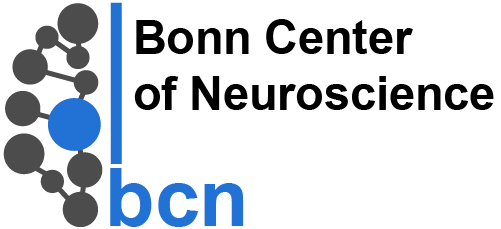Mission: To alleviate the burden of epilepsy and comorbidities and to improve quality of life of people with epilepsy.
Background: Epilepsy is a chronic network disorder of the brain that is characterized by spontaneously recurring epileptic seizures. About 70 million people worldwide suffer from epilepsy, with highest incidence rates in infants and the elderly. The causes of epilepsy are manifold and include, amongst others, acquired brain injuries, infections, autoimmune diseases, brain tumors, developmental malformations, metabolic disturbances, neurodegenerative diseases and genetic defects. Seizures are characterized by a variety of symptoms, depending on the brain region involved in the abnormal activity, and are often accompanied by loss of body control and awareness, thereby increasing the risk for accidents and injuries. Furthermore, chronic epilepsy and recurrent seizures impair cardiorespiratory autonomic function, which is linked to elevated premature mortality.
Current treatments of people with epilepsy suppress initiation and evolution of epileptic seizures (‚ictogenesis‘), but do not target prevention of the development of epilepsy (‚epileptogenesis‘) or disease progression. Treatment options include antiseizure medication, neurostimulation devices, ketogenic diets, resective epilepsy surgery and minimally invasive ablation techniques. Important limitations in the care of affected people are lack of accurate therapy monitoring and reliable seizure alerting tools. In a considerable proportion of patients, seizures appear to occur in rhythms and cycles, but the individual seizure risk remains difficult to forecast.
Goals: Appropriate treatment and care of people with epilepsy are still challenging, prompting further efforts and research to address the following issues:
- To understand mechanisms of seizure generation, disease severity and treatment response, and the impact of epilepsy etiologies on these aspects,
- To improve diagnostics for epilepsy surgery including brain MRI and advanced EEG technologies,
- To develop mobile technologies and apps to forecast and monitor seizures,
- To derive personalised antiseizure and disease modifying therapies,
- To understand mechanisms and prevent premature death in epilepsy.
Clinical structures: The Bonn Epilepsy Center offers the full spectrum of state-of-the art diagnostics and treatments in children and adults with seizure disorders, capitalising on the long standing expertise of the Department of Epileptology in close collaboration with the Departments of Neuroradiology and Neurosurgery, the Departments of Neuropathology, Neuropediatrics, Nuclear Medicine and Radiation Oncology.
Research groups and Institutes: Bonn’s success as one of the leading centers in epilepsy research relies on its ability to benefit from the systematic use of scientific opportunities afforded by clinical care and the strong connection between scientific and clinical questions. Numerous research groups are based in the Department of Epileptology (Groups Fell, Helmstaedter, Kunz, Lehnertz, Mormann, Pitsch, Rüber, Surges, von Wrede and Moskau-Hartmann, Wenzel), the Institute for Experimental Epileptology and Cognitive Research (IEECR, Groups Beck, Rose, Kunz, Weber), the Departments of Neurosurgery (Groups Dietrich, Vatter) and Neuroradiology (Radbruch Group), the Section of Translational Epilepsy Research (Schoch-McGovern and Becker Groups, Institute of Neuropathology), the Institute of Cellular Neurosciences (Steinhäuser and Henneberger Groups) and the Insititute of Digital Medicine (Jonas Group). These collaborations offer an extraordinary spectrum of neuroscientific methods and interests, ranging from cutting edge in-vivo technologies at the cellular level in humans and animals to theoretical-mathematical approaches.
Research: Key aspects of the IRTC Epilepsy research cover seizure detection and prediction, neurocognitive research, genetic causes of epilepsies, epilepsy-associated tumors and malformations and neuroinflammatory seizure syndromes (autoimmune encephalitis), mobile health technologies, autonomic function and sudden death in epilepsy. It has a particular expertise in intracranial EEG recordings performed in candidates for epilepsy surgery. This offers unique scientific opportunities, such as in-vivo single neuron recordings in patients and has already provided important insights into mechanisms of seizure initiation and the question how conscious percepts are transferred into episodic memory traces. This research is complemented by the MRI groups which analyze higher cognitive function, but also structural abnormalities in epilepsies as well as acute effects of seizures on MRI features. In parallel, there is a strong research program in understanding the cellular and circuit changes that give rise to seizures and cognitive comorbidities. Glial dysfunction and disturbed neuron-glia interaction play a major role in pathogenesis of temporal lobe epilepsy and are a further important research field. Epilepsy research is a major focus with several research consortia, most notably the SFB 1089.
